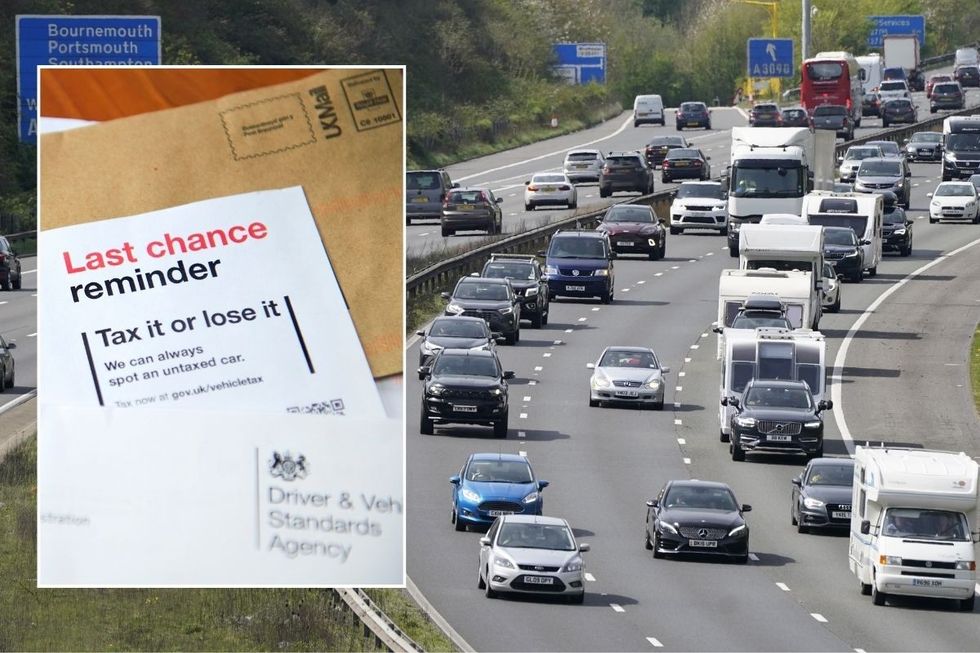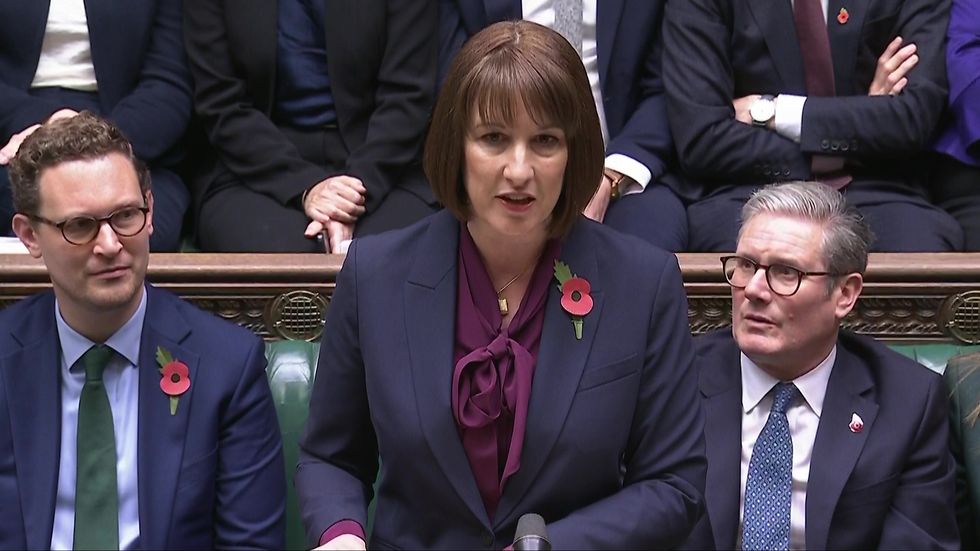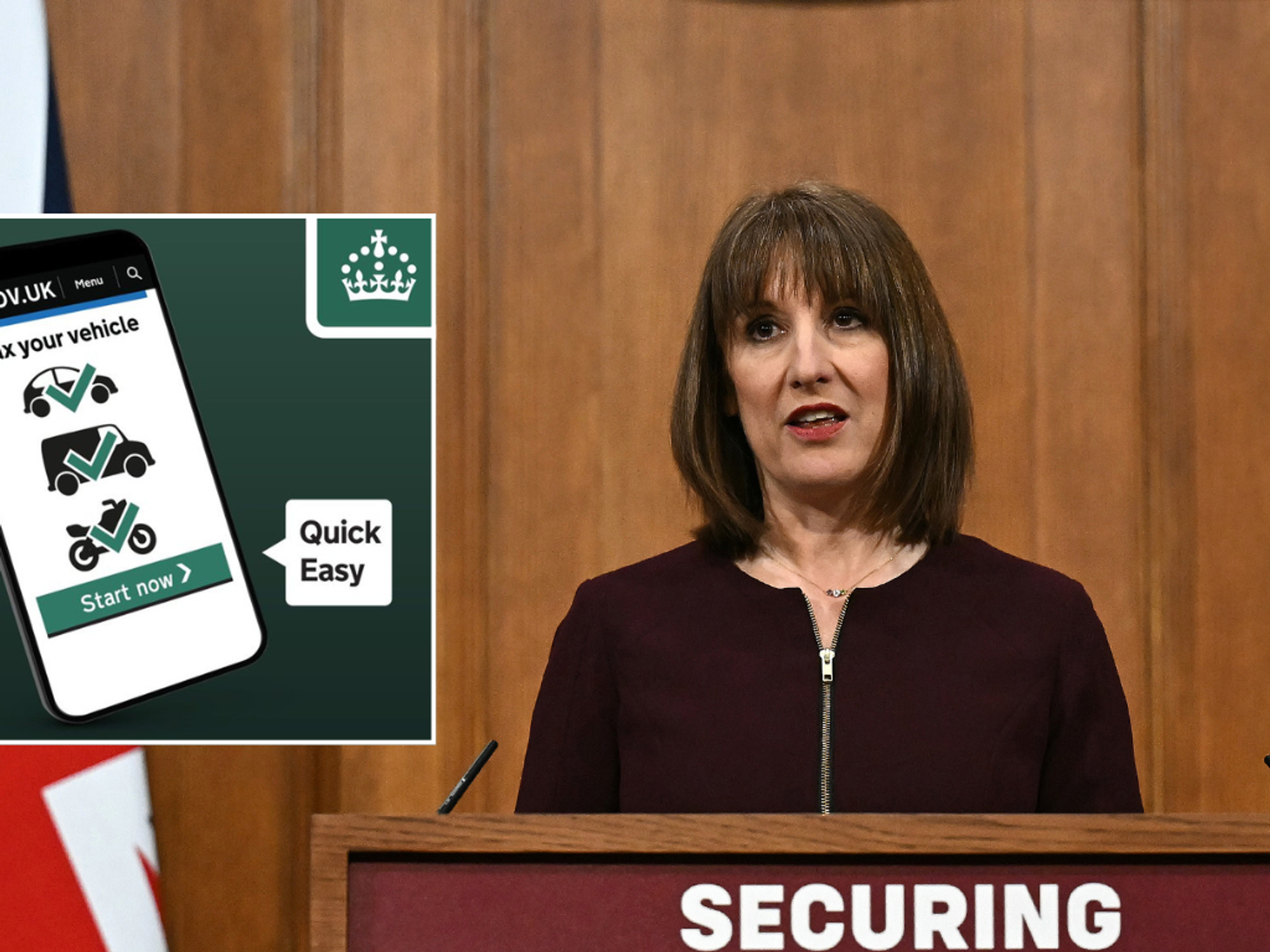Major car tax update is 'exactly the right move' despite costing petrol and diesel drivers £5,490
WATCH: Rachel Reeves says she will continue to support the purchasing of electric cars
'The future is electric and tax policy needs to reflect that'
Don't Miss
Most Read
Trending on GB News
An expert has praised Labour for hiking car tax rates for petrol and diesel vehicles as the UK moves towards more sustainable forms of travel following the Budget.
Chancellor Rachel Reeves unveiled the Autumn Statement earlier this week and announced that the Government would be doing more to "widen the differentials" between electric cars and internal combustion engine vehicles.
The move will see Vehicle Excise Duty (VED) rates for cars, vans and motorcycles, excluding first year rates for cars, rise in line with RPI from April 1, 2025.
Another major change will see VED first year rates jump to strengthen incentives for drivers to purchase a zero emission vehicle.
Do you have a story you'd like to share? Get in touch by emailingmotoring@gbnews.uk

The car tax changes are set to be introduced in April next year
GETTY/PA
Zero emission cars will pay the lowest first year rate of £10 until 2029-30, while rates for cars emitting between one and 50 grams of CO2 per kilometre, including hybrid vehicles, will increase from £10 to £110 for 2025-26.
All other rates for cars emitting more than 76g/km of CO2 will double from their current level for 2025-26. This could see owners of the most polluting petrol and diesel vehicles pay as much as £5,490.
Anna Krajinska, UK Director at Transport & Environment, said the Chancellor's first Budget was a "flying start" for transport and net zero efforts.
She added: "Increasing the first year Vehicle Excise Duty differential between polluting and electric cars, for which the UK currently has one of the worst differentials in Europe, is exactly the right move.
"The future is electric and tax policy needs to reflect that.
"Meanwhile, extending preferential rates for electric cars through the UK’s very successful Benefit-in-Kind policy is a smart decision to sustain EV demand for the years to come."
While the car tax changes will boost incentives for electric vehicles and help the UK meet its 2035 target to ban the sale of petrol and diesel vehicles, not everyone is pleased with the new rules.
Richard Smith, MD of the Road Haulage Association (RHA), said the cost of motoring is still too high for many Britons, and these changes would only add more stress.
He said: "We are disappointed that the Heavy Goods Vehicle (HGV) VED rate and the HGV Levy will rise with RPI from April 1, 2025.
"This will add further cost pressure on vehicle operators at a time when the industry is facing a range of other rising costs."
The Budget also clarified that the Government is committed to phasing out new cars that rely solely on internal combustion engines by 2030 and that from 2035 all new cars and vans sold in the UK will be zero emission.
As part of this, Budget documents state that over £200million will be invested in 2025-26 to accelerate the rollout of public electric vehicle chargers, with further funding to support local authorities to install on-street chargepoints across England.
LATEST DEVELOPMENTS:

Chancellor of the Exchequer Rachel Reeves delivered her Budget to the House of Commons earlier this week
PAAround £120million is also being provided to help motorists purchase new electric vans via the plug-in vehicle grant and to support the manufacture of wheelchair accessible EVs.
The Budget stated that the Government would maintain tax incentives to purchase electric cars through Vehicle Excise Duty first year rates and the Company Car Tax regimes.
This will also see an extension to the 100 per cent First Year Allowances for electric cars and chargepoints to run for a further year.








